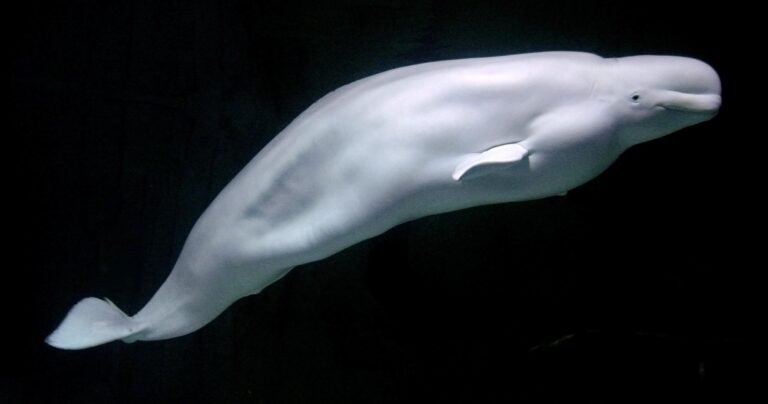Canada’s Marineland park is facing mounting controversy after announcing plans to euthanise 30 beluga whales currently held at its facility. The decision has sparked outrage among animal rights advocates and marine conservationists, who argue the move highlights ongoing concerns about the ethics of keeping large marine mammals in captivity. As public scrutiny intensifies, questions are being raised about the welfare standards at Marineland and the future of captive belugas in Canada. This article explores the circumstances leading to the planned euthanasia and the broader implications for marine parks nationwide.
Canada’s Marineland Faces Backlash Over Plans to Euthanise Beluga Whales
Marineland, one of Canada’s most well-known marine parks, is facing severe public criticism after announcing intentions to euthanise up to 30 beluga whales currently housed at the facility. Animal rights activists, environmental groups, and members of the public have reacted with outrage, accusing the park of prioritizing financial concerns over animal welfare. The belugas, some of which have lived at Marineland for decades, are reportedly being targeted due to high maintenance costs and challenges related to aging populations in captivity.
Key points fueling the backlash include:
- The absence of alternative relocation or sanctuary options for the whales
- Concerns over the ethical implications of euthanasia as population control
- Calls from marine conservationists for increased government oversight
- Public petitions demanding the protection and improved care of the beluga whales
| Aspect | Details |
|---|---|
| Number of Belugas | Approximately 30 whales |
| Primary Reason | Financial strain and aging population |
| Animal Rights Response | Widespread protests and petitions |
| Government Action | Calls for investigation and regulation |
Experts Warn of Ethical and Conservation Implications Amid Growing Public Outcry
Marine biologists and animal welfare advocates have expressed profound concern over the potential euthanasia of 30 beluga whales at Canada’s Marineland park, highlighting the severe ethical dilemmas this action presents. Experts argue that these intelligent marine mammals possess complex social structures and cognitive abilities, warranting not only humane treatment but also long-term conservation efforts. The ethical debate extends beyond animal rights to encompass questions about captivity’s psychological impact, the responsibility of institutions managing exotic species, and the broader message such decisions send to global audiences on wildlife preservation.
Conservationists emphasize that the loss of these belugas could undermine decades of efforts to protect wild populations, considering that captive belugas serve as crucial ambassadors for public education and research. The situation has sparked demands for alternative solutions, including:
- Relocation to sea sanctuaries equipped for beluga rehabilitation and social reintegration;
- Enhanced veterinary care programs designed to extend animals’ quality of life;
- Collaborative efforts with indigenous communities to honor cultural and ecological values.
Below is a comparison of the proposed options and their potential impacts:
| Option | Animal Welfare Impact | Conservation Benefit | Public Perception |
|---|---|---|---|
| Euthanasia | Negative – ends life prematurely | None | Highly Negative |
| Sea Sanctuary Relocation | Positive – promotes natural behaviors | Moderate | Positive |
| Continued Captivity | Mixed – stress and health risks remain | Low | Negative to Mixed |
Calls for Immediate Intervention and Enhanced Protection Measures for Captive Belugas
Advocates and experts worldwide are urging government agencies to enact urgent protective legislation to safeguard the lives of captive belugas in Marineland. The proposed euthanasia plan has ignited global outrage, highlighting critical gaps in animal welfare regulations governing marine parks. Conservationists emphasize the necessity for immediate intervention, calling on policymakers to prioritize the well-being of these intelligent mammals by enforcing stricter standards for their care and habitat conditions.
Key demands include:
- Improved environmental enrichment and habitat expansion.
- Enhanced veterinary care accessibility and transparency.
- Mandatory external audits of captive marine animal facilities.
- Development of rescue and rehabilitation programs for at-risk individuals.
| Protection Measure | Current Status | Advocated Change |
|---|---|---|
| Legal Framework | Outdated and limited scope | Comprehensive federal regulation |
| Facility Monitoring | Minimal oversight | Mandatory annual audits |
| Animal Welfare Standards | Inconsistent implementation | Uniform nationwide standards |
| Emergency Rescue Plans | Nonexistent | Establishment of rapid response teams |
The Conclusion
As controversy continues to surround Marineland’s treatment of its beluga whales, the potential euthanasia of 30 individuals has drawn widespread condemnation from animal rights groups and marine conservationists alike. The situation underscores the ongoing challenges faced by marine parks balancing entertainment, animal welfare, and ethical responsibility. With public pressure mounting, the fate of these belugas remains uncertain, prompting calls for greater oversight and a reevaluation of captivity practices in Canada’s marine facilities.




